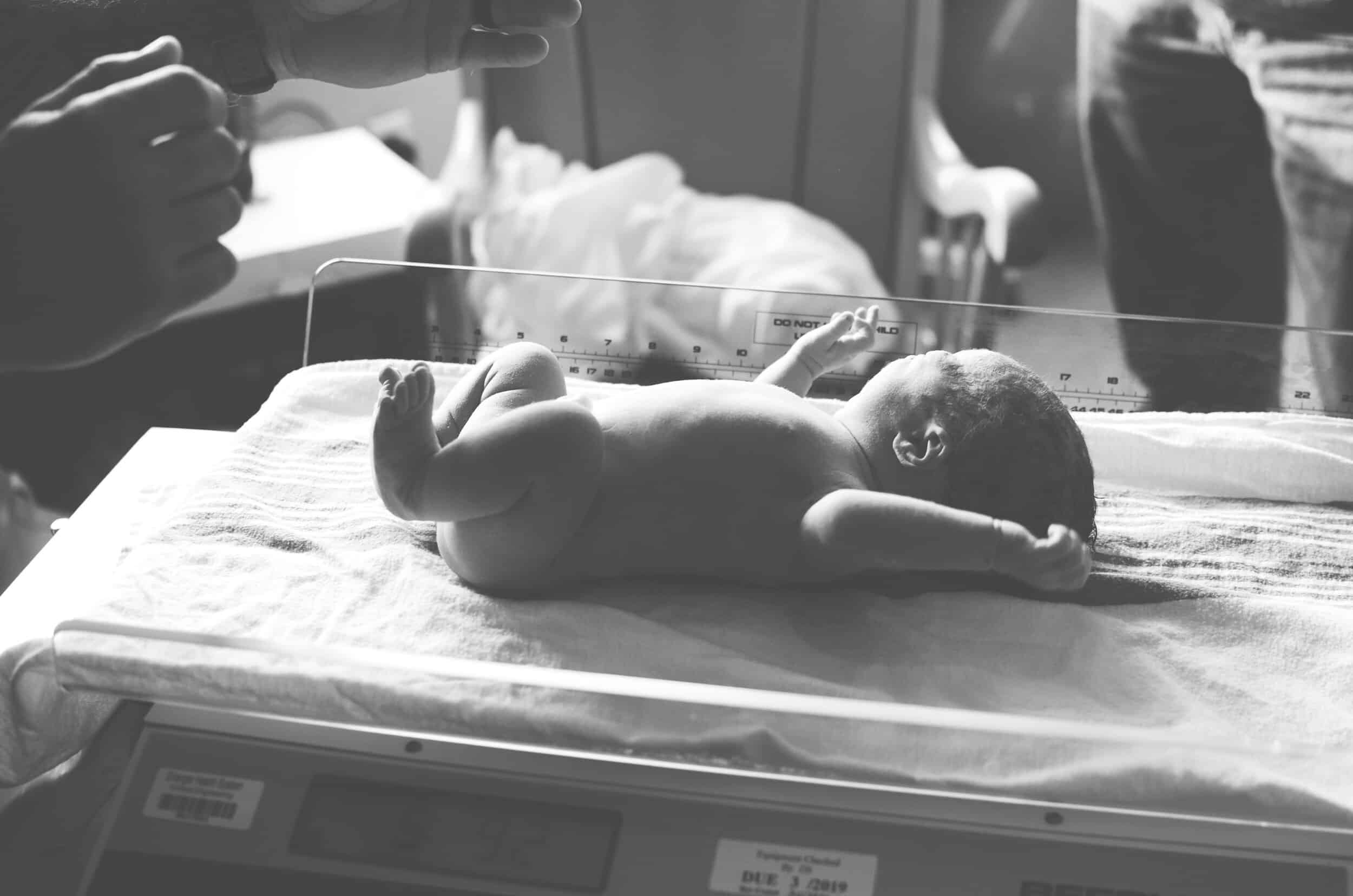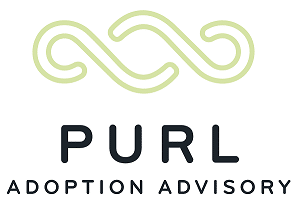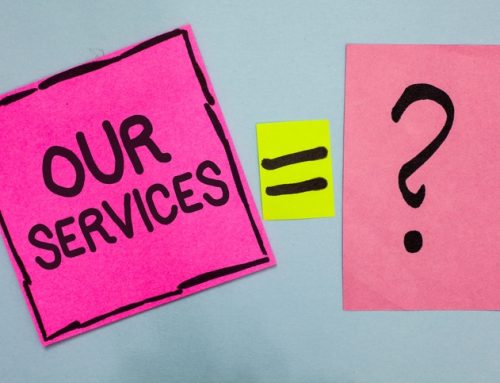
We have discussed the domestic adoption process for a prospective adoptive parent up to the point where you are matched, have traveled, and now have arrived at the hospital. You have prepared a gift for the expectant family, you are being as flexible as possible in the hospital because you know adoption plans change and are fluid, but wow, are you stressed! The period of time between the birth and the signing of consents is rough, there is no way around it. It is obviously very hard on the expectant family, who are likely making one of the most difficult decisions of their lives. But it is also very difficult as a prospective adoptive parent. Read my own experience with this waiting period, I called it “An Adoptive Parent’s Labor”.
If you are asked to be in the delivery room by the expectant family who has chosen you as prospective adoptive parents for their child, know how special it is and be appreciative of someone you don’t know well letting you be involved in one of the most intimate moments in time. Be respectful of her privacy, and encourage her as needed. Follow her lead, but try and support her each and every moment of the way. When the baby is born, I recommend asking her if she’s like to hold the child first, ask her who she wants to cut the cord and make sure she understands you are okay with whatever she wants in the hospital. If she encourages you to care for the baby, make sure you don’t completely abandon her after that, check in with her often. If she prefers you go to another room with the baby, give her time to rest but do make sure you check in with her, her social worker or family member if someone is there with her, to give her the opportunity to spend time with the child if she desires. Sometimes an expectant mom wants to spend the entire hospital time with their child, and that doesn’t mean they won’t place. Sometimes and expectant mom spends no time at all during the hospital experience with the child, but then still chooses to parent. No matter what occurs at the hospital, try and go with the flow and know that if that child is meant to be yours, it will be, and that it is out of your control. Your one role is to support the woman who has chosen you to be there.
As the prospective adoptive parents, the expectant family may decide to give you one of the hospital bracelets that are typically given at the time of a child’s birth. This bracelet can provide access to the baby in the NICU or nursery, and sometimes will give you more information about the baby’s medical information. Typically there will not be multiple bracelets given to prospective adoptive parents, so a couple will likely need to be together if both want to visit the baby in the NICU, nursery, or even to have the baby in a separate room. However, this bracelet won’t entitle you to any protected information about the expectant mother, so be advised that the doctors or nurses may not feel comfortable sharing some medical information if it also pertains to the expectant mother.
Oftentimes a hospital will offer a hospital room for an adoptive family, if that is what the expectant family desires and there is space available. But sometimes all access to the child will be in a nursery/NICU, or in the expectant family’s room with them present. Sharing a room in this way can be a great way to bond more with the child’s first family, but it can also be difficult and awkward on everyone. We recommend that you try and jot down or journal all that you learn about the expectant family during this experience while that information is still fresh. You never know how much contact you will have in the adoption going forward, and you could learn information that your child will appreciate about their birth family. Sometimes I still look back at the notes I took during this time, and remind myself of facts Cora has in common with her birth mother. For example, Cora’s birth mother told me in her hospital room that her favorite color was purple, so now that’s something I point out that she has in common with her first mama.
If the expectant mom has informed hospital personnel that she is making an adoption plan, most likely there will be a hospital social worker involved at some point. You may have contact with that social worker, or the contact could go through the attorney or agency handling the adoption, each hospital (and social worker) handles things a little differently. Know that not everyone in the hospital will be comfortable or educated about adoption, they are likely to use inappropriate adoption terminology or say something insensitive. They might express negative opinions about adoption, you as prospective adoptive parents or the child’s first family. Try and blow off any negativity you hear, or talk with your advisor, agency, attorney or the hospital social worker about any particularly egregious comments.
During the time between the baby’s birth and consent signing, you need to be flexible, empathetic, and sensitive to the expectant family, which can be difficult during times of stress and often lack of sleep. There is a fine balance between being excited about the baby, at the same time not celebrating too much in front of someone else who is likely suffering a great loss. You also want to guard your heart, but all the while making sure you get to bond with a child that could be yours. Please understand that no matter how secure someone is in their adoption plan, many times people change their mind after the birth or during the hospital experience. That does not mean they weren’t truthful about their intentions and it doesn’t make them a scammer. Sometimes it is outside influences that cause the change of heart, others pledging to provide support for the expectant family to parent. But more often than not if the adoption disrupts, the expectant family believed they could go through with their plan and then learned they could not do so at that emotional moment. Understand that often expectant moms change their minds at least once or twice during the hospital experience, even if they don’t verbalize it. Try not to react too emotionally if something you see or hear upsets you during this period, especially if your typical response to being upset is anger. Carefully find a gracious way to leave the room and call your advisor, your agency, your attorney or a trusted confidante/counselor that is familiar with adoption. This expectant mom cannot handle anyone else’s emotions besides her own at that moment. Just because she’s wavering does not mean she won’t ultimately place (even many days later), but she will be much less likely to if she doesn’t feel supported by you.
Depending on the state you are in, the period you might be waiting to find out if the expectant family decides to proceed with the adoption plan could be 48 hours, 72 hours, or even longer after the baby’s birth. Once the birth family signs consents, those consents could be revocable for some time after the expectant family signs, it just depends on the applicable state’s laws. Make sure you have an experienced adoption attorney lined up to advise you on any legal issues that arise in your adoption. We also recommend that every expectant family be offered their own separate counsel to advise them on the significance of consenting to an adoption, which also protects prospective adoptive parents from a claim from a birth family member later claiming fraud or duress during the signing.
Hopefully, you have determined a post adoption contact plan with the expectant family before delivery, but know that oftentimes feelings change about contact during or after the hospital experience, often deciding they want more contact than they thought they wanted before the delivery. Be mindful that may not actually mean that they will want that contact going forward, so once again, try and go with the flow and always keep in mind the best circumstances for your child and your child’s development. Open adoption can be very beautiful and can help your child to grow up more whole, with less unanswered questions about their adoption. More on post-adoption contact soon!

We have discussed the domestic adoption process for a prospective adoptive parent up to the point where you are matched, have traveled, and now have arrived at the hospital. You have prepared a gift for the expectant family, you are being as flexible as possible in the hospital because you know adoption plans change and are fluid, but wow, are you stressed! The period of time between the birth and the signing of consents is rough, there is no way around it. It is obviously very hard on the expectant family, who are likely making one of the most difficult decisions of their lives. But it is also very difficult as a prospective adoptive parent. Read my own experience with this waiting period, I called it “An Adoptive Parent’s Labor”.
If you are asked to be in the delivery room by the expectant family who has chosen you as prospective adoptive parents for their child, know how special it is and be appreciative of someone you don’t know well letting you be involved in one of the most intimate moments in time. Be respectful of her privacy, and encourage her as needed. Follow her lead, but try and support her each and every moment of the way. When the baby is born, I recommend asking her if she’s like to hold the child first, ask her who she wants to cut the cord and make sure she understands you are okay with whatever she wants in the hospital. If she encourages you to care for the baby, make sure you don’t completely abandon her after that, check in with her often. If she prefers you go to another room with the baby, give her time to rest but do make sure you check in with her, her social worker or family member if someone is there with her, to give her the opportunity to spend time with the child if she desires. Sometimes an expectant mom wants to spend the entire hospital time with their child, and that doesn’t mean they won’t place. Sometimes and expectant mom spends no time at all during the hospital experience with the child, but then still chooses to parent. No matter what occurs at the hospital, try and go with the flow and know that if that child is meant to be yours, it will be, and that it is out of your control. Your one role is to support the woman who has chosen you to be there.
As the prospective adoptive parents, the expectant family may decide to give you one of the hospital bracelets that are typically given at the time of a child’s birth. This bracelet can provide access to the baby in the NICU or nursery, and sometimes will give you more information about the baby’s medical information. Typically there will not be multiple bracelets given to prospective adoptive parents, so a couple will likely need to be together if both want to visit the baby in the NICU, nursery, or even to have the baby in a separate room. However, this bracelet won’t entitle you to any protected information about the expectant mother, so be advised that the doctors or nurses may not feel comfortable sharing some medical information if it also pertains to the expectant mother.
Oftentimes a hospital will offer a hospital room for an adoptive family, if that is what the expectant family desires and there is space available. But sometimes all access to the child will be in a nursery/NICU, or in the expectant family’s room with them present. Sharing a room in this way can be a great way to bond more with the child’s first family, but it can also be difficult and awkward on everyone. We recommend that you try and jot down or journal all that you learn about the expectant family during this experience while that information is still fresh. You never know how much contact you will have in the adoption going forward, and you could learn information that your child will appreciate about their birth family. Sometimes I still look back at the notes I took during this time, and remind myself of facts Cora has in common with her birth mother. For example, Cora’s birth mother told me in her hospital room that her favorite color was purple, so now that’s something I point out that she has in common with her first mama.
If the expectant mom has informed hospital personnel that she is making an adoption plan, most likely there will be a hospital social worker involved at some point. You may have contact with that social worker, or the contact could go through the attorney or agency handling the adoption, each hospital (and social worker) handles things a little differently. Know that not everyone in the hospital will be comfortable or educated about adoption, they are likely to use inappropriate adoption terminology or say something insensitive. They might express negative opinions about adoption, you as prospective adoptive parents or the child’s first family. Try and blow off any negativity you hear, or talk with your advisor, agency, attorney or the hospital social worker about any particularly egregious comments.
During the time between the baby’s birth and consent signing, you need to be flexible, empathetic, and sensitive to the expectant family, which can be difficult during times of stress and often lack of sleep. There is a fine balance between being excited about the baby, at the same time not celebrating too much in front of someone else who is likely suffering a great loss. You also want to guard your heart, but all the while making sure you get to bond with a child that could be yours. Please understand that no matter how secure someone is in their adoption plan, many times people change their mind after the birth or during the hospital experience. That does not mean they weren’t truthful about their intentions and it doesn’t make them a scammer. Sometimes it is outside influences that cause the change of heart, others pledging to provide support for the expectant family to parent. But more often than not if the adoption disrupts, the expectant family believed they could go through with their plan and then learned they could not do so at that emotional moment. Understand that often expectant moms change their minds at least once or twice during the hospital experience, even if they don’t verbalize it. Try not to react too emotionally if something you see or hear upsets you during this period, especially if your typical response to being upset is anger. Carefully find a gracious way to leave the room and call your advisor, your agency, your attorney or a trusted confidante/counselor that is familiar with adoption. This expectant mom cannot handle anyone else’s emotions besides her own at that moment. Just because she’s wavering does not mean she won’t ultimately place (even many days later), but she will be much less likely to if she doesn’t feel supported by you.
Depending on the state you are in, the period you might be waiting to find out if the expectant family decides to proceed with the adoption plan could be 48 hours, 72 hours, or even longer after the baby’s birth. Once the birth family signs consents, those consents could be revocable for some time after the expectant family signs, it just depends on the applicable state’s laws. Make sure you have an experienced adoption attorney lined up to advise you on any legal issues that arise in your adoption. We also recommend that every expectant family be offered their own separate counsel to advise them on the significance of consenting to an adoption, which also protects prospective adoptive parents from a claim from a birth family member later claiming fraud or duress during the signing.
Hopefully, you have determined a post adoption contact plan with the expectant family before delivery, but know that oftentimes feelings change about contact during or after the hospital experience, often deciding they want more contact than they thought they wanted before the delivery. Be mindful that may not actually mean that they will want that contact going forward, so once again, try and go with the flow and always keep in mind the best circumstances for your child and your child’s development. Open adoption can be very beautiful and can help your child to grow up more whole, with less unanswered questions about their adoption. More on post-adoption contact soon!



